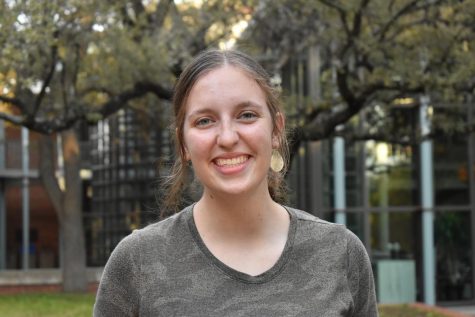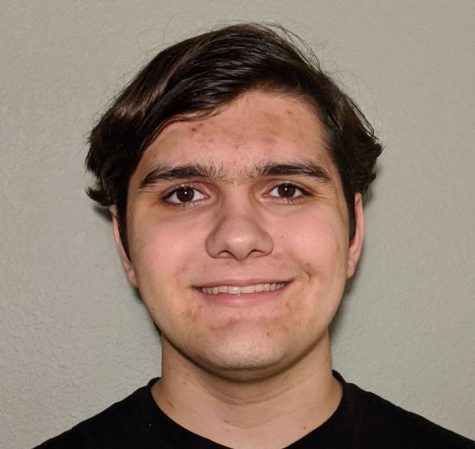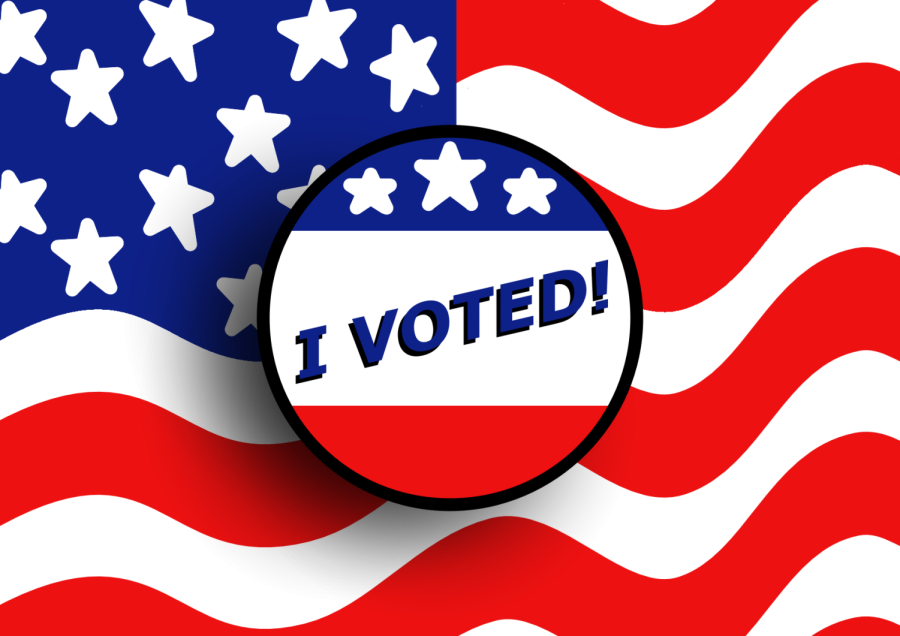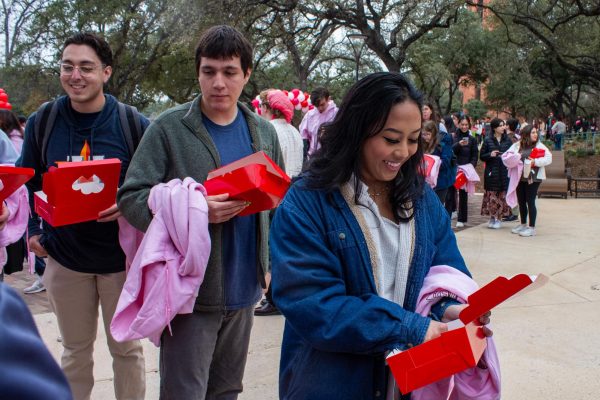Trinity Voter Engagement Task Force works to prepare students for upcoming Nov. elections
Midterm elections and Texas governor race loom ahead as task force registers students
As October begins, voting season is nearly in full swing. Midterm congressional elections as well as high-profile gubernatorial seats will be filled this November across the country. In the Trinity community, residents of U.S. House District 35, as well as other Texas districts, will have the opportunity to vote for governor, attorney general, lieutenant governor and many other local positions. In preparation for the rapidly closing registration window (registration ends on Oct. 11 in Texas) and voting day, the Trinity University Voter Engagement Task Force is working to register students and provide them with ample knowledge and access to vote.
Jamie Thompson, assistant dean of students and director of Student Involvement, is the founder and chair of the TU Voter Engagement Task Force. Thompson originally compiled the group in 2019 in preparation for the 2020 general elections and census.
“It’s a group of individuals [students, staff and faculty] who have an interest and passion in voter engagement, which is critical on a college campus,” Thompson said. “We’re focusing on civic holidays this fall so National Voter Registration Day and National Voter Education Week, which is the first week in October and then vote early Day on October 28.”
In conjunction with the task force and student involvement, the campus vote project has helped fund and train two democracy fellows. These fellows are students that are “passionate about democratic engagement and non-partisan voter engagement efforts” according to the job description.
First-year Kiara Fernando, psychology and human resources management double major, serves as one of the democracy fellows and sought the position to get involved on campus in a meaningful way. As a part of her position, Fernando is now a volunteer deputy registrar (VDR) meaning she can register others to vote. She helps plan and facilitate events like the Voter Registration Day event that was held on Sept. 20.
“I wanted a role that was more substantial and had [an] actual impact in the community,” Fernando said. “I feel like my perspective here is more as an incoming freshman who doesn’t know that much about the political system [and] has never voted before because I just turned 18 in April … So I’m able to kind of like recognize where the additional information is needed.”
These voter engagement efforts come at a time when the U.S political climate is polarized and nationalized. Colby Humphrey, visiting assistant professor of political science, discussed the voter climate in the U.S. and what the main factors he anticipates will influence the vote this November: the economy, specifically inflation, Donald Trump’s campaign efforts for Republican candidates and the supreme court decisions over the summer, most notably Dobbs v. Jackson Women’s Health Organization.
Humphrey discussed the Texas governor race, a race that many have considered a potential Democratic upset.
Greg Abbott, the Republican candidate, has been a strong supporter of Donald Trump, focusing on strengthening border security, while Beto O’Rourke, former mayor of El Paso, is campaigning strongly for abortion rights. Right now, FiveThirtyEight polls show Abbott ahead in the polls by 7.4 percent points. O’Rourke has been strongly campaigning in more rural areas of Texas.
“Beto was going into some of these smaller rural areas … like the Panhandle and just kind of all over where he knows he’s not going to win that county or that district,” Humphrey said. “So I think if there’s gonna be an upset, I think he’s doing what he needs to do. To do that, I just don’t think it’s going to work yet.”
Additionally, Humphrey suggests that voters do their homework before going to the polls, especially in more local, less-covered races. Humphrey recommends the Texas Tribune for Texas voters. Voters can type in their address and see who is up for reelection in their home district. Out-of-state voters can do the same at https://www.usa.gov/election-office.
“I would recommend reading a broad selection of news and sources [which helps] you to craft your opinion of the world and who to vote for,” Humphrey said.
Although voter disillusionment is a very real phenomenon, many remain dedicated to participating in the U.S. voting process for various reasons. Thompson and Humphrey both emphasized the importance of voting in the democratic tradition of the United States.
“We have a great inheritance … both in Texas and nationally [but] there is a lot of obvious problems that we’re working through, but not everyone gets the opportunity to vote in the world, and not everyone gets an opportunity to elect representatives that can change things that you don’t like,” Humphrey said.
“Fundamentally, for me, [voting] is what shapes and forms communities, it’s how communities thrive and being engaged in the democratic process is how that happens. It’s for me, it’s like the bedrock of our community and country,” Thompson said.
As a democracy fellow, Fernando speaks with many students. She emphasized the importance of voting for the future.
“I talk to a lot of people who just don’t see how it affects them. Just growing up, you’re kind of in a bubble. You don’t understand how politics affects you but it’s important to make that change as you go into an adult and realize that everything that happens politically is affecting you,” Fernando said.

Hello, y'all! I'm Abby Power, and I am a sophomore news reporter from Kyle, Texas. I intend to major in Political Science, Spanish, and Global Latinx Studies....

I'm Tony Rodriguez! I'm a junior from San Antonio, TX, majoring in math, and I worked as a copy editor for the Trinitonian about two years ago and am now...










